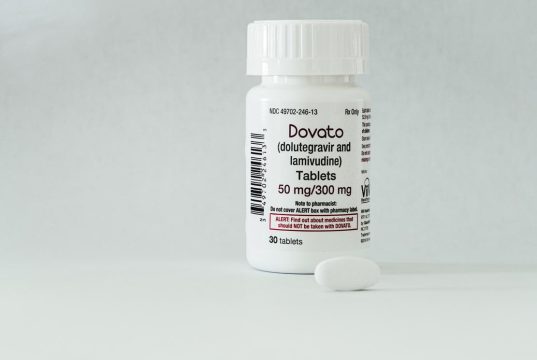Advertisment
Gabapentin appears to offer relief of refractory chronic cough
by Bruce Sylvester – FDA Highlights – A study published online on August 27, 2012 in The Lancet suggests that gabapentin, a pain and seizure drug, significantly reduces both frequency and severity of coughing and other symptoms associated with chronic cough.
“These effects are very promising and raise hope for many people with refractory chronic cough — a condition that can be both psychologically and physically disabling and for which no effective drugs are available — who now have a potential new treatment option,” said investigator and author Nicole Ryan, MD, University of Newcastle, Newcastle, Australia.
As background, the authors noted that the exact cause of chronic cough is not known. Some studies suggest it could be related to central sensitization, which is also implicated in neuropathic pain. Studies show that gabapentin is an effective treatment for chronic neuropathic pain.
In this study, the investigators enrolled 62 subjects with refractory chronic cough (cough lasting >8 weeks) who had not responded to standard treatment. They randomized the subjects to either gabapentin (maximum tolerable daily dose 1800 mg) or placebo, for 10 weeks.
The subjects were assessed 5 times during the study, and coughs were rated using the Leicester cough questionnaire (LCQ), which assigns a score based on physical, social, and psychological impact of the cough, as well as cough frequency and severity.
Subjects treated with gabapentin achieved significant and sustained improvement on cough-specific quality of life, cough severity, and cough frequency, compared with subjects treated with placebo.
After 8 weeks of treatment, significantly more coughers in the gabapentin group reported an improvement in LCQ score of >1.3 (the smallest change in score considered as clinically meaningful) compared with the placebo group (74% vs 46%).
The authors noted that beneficial effects were unsustained after treatment was ended, adding that, “the reduction in efficacy of gabapentin after withdrawal further supports its antitussive effect.”
Gabapentin was generally well-tolerated. Less than a third of the gabapentin-treated subjects reported side-effects, most commonly nausea and fatigue, which were managed by dose reduction.
“Gabapentin is effective, well tolerated, and has few drug interactions and therefore its addition to chronic cough standard practice guidelines should be considered, although replication studies are necessary before this happens,” said Dr. Ryan.
In an accompanying comment, Kian Fan Chung, MD, Imperial College, London, United Kingdom, wrote: “These results suggest that gabapentin is worth trying in patients with refractory chronic cough and should provide the impetus to pursue similar trials of other drugs developed to suppress cough sensitisation pathways or target primary afferent nerves associated with cough.”





